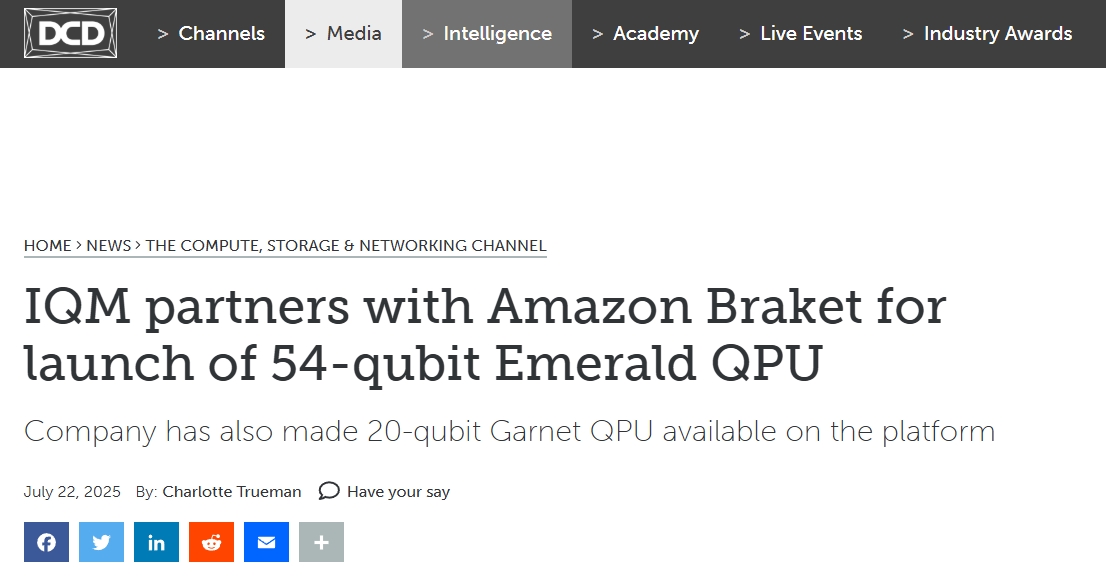Company has also made 20-qubit Garnet QPU available on the platform.
Quantum computing firm IQM has made IQM Emerald, a 54-qubit QPU (quantum processing unit), available on Amazon Web Services' (AWS) Braket service.
Offering two-qubit gate fidelity of 99.5 percent, the company said Emerald is based on superconducting transmon qubits arranged in a square lattice and interconnected via tunable couplers.
IQM said Emerald’s high connectivity configuration enables “efficient mapping of quantum algorithms to the device topology,” while its square lattice design “natively supports surface-code error correction, positioning it for future fault-tolerant quantum computing applications.”
In addition to the launch of Emerald, IQM has also made its 20-qubit Garnet QPU available on Braket. Both Emerald and Garnet are available 19 hours a day through the Europe (Stockholm) Region, which allows customers to meet European data residency requirements, AWS said.
Braket is AWS’ quantum service that allows customers to book time on quantum computers from a number of different hardware providers. It offers access to different quantum technologies, including superconducting, trapped-ion, and neutral atom devices, on pay-as-you-go pricing, or customers can reserve dedicated capacity with hourly pricing and no upfront commitments.
Rather than hosting quantum computers in Amazon data centers, the systems are hosted by the quantum providers in their own facilities and made available on AWS' cloud via APIs.
“In this early phase of quantum computing, experimentation across a variety of available devices is crucial for developing quantum algorithms to eventually address complex problems across domains like finance, energy, [and] pharmaceuticals,“ IQM wrote on LinkedIn.








